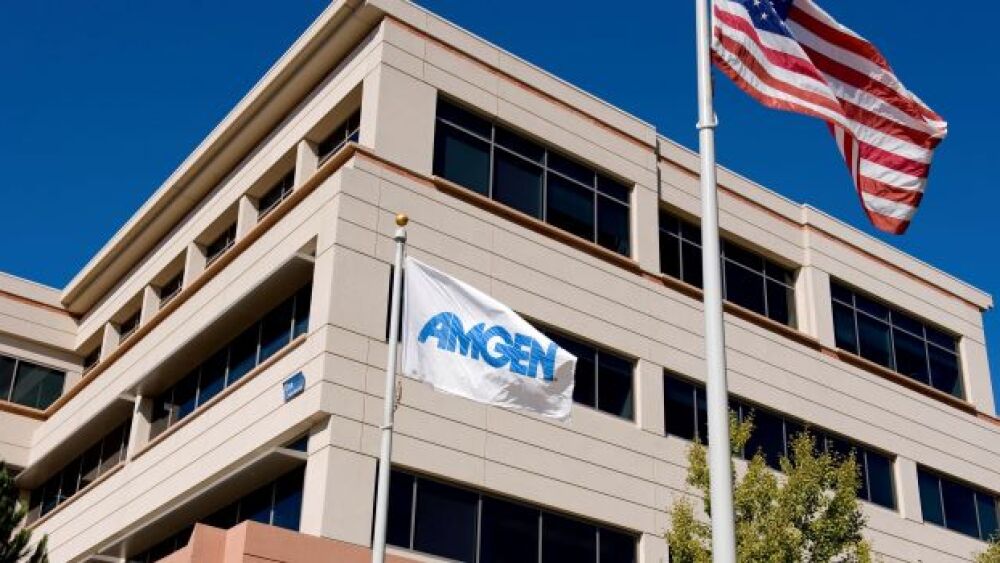While the exact settlement details are confidential, the deal will allow Amgen to launch its Stelara biosimilar no later than January 1, 2025.
Pictured: Amgen headquarters building with flags/Courtesy of Amgen
Tuesday, Johnson & Johnson and Amgen reached a settlement in their patent dispute over the latter’s biosimilar candidate to J&J’s blockbuster antibody Stelara (ustekinumab), according to a Delaware court filing reported by Reuters.
The exact terms of the settlement remain “confidential” at this time, an Amgen spokesperson told BioSpace in an email, adding that the agreement will allow “Amgen to launch its biosimilar candidate to STELARA no later than January 1, 2025,” subject to the FDA’s approval of its BLA.
BioSpace also reached out to J&J but the company was not immediately available for comment.
Stelara is J&J’s top-selling asset. In 2022, the therapeutic antibody brought in over $9.7 billion in revenue, up by around 6% from its $9.1 billion sales figure in 2021. The blockbuster biologic accounted for more than half of the earnings of J&J’s immunology business and sold more than the company’s other heavy hitters, including the cancer medicines Darzalex (daratumumab) and Imbruvica (ibrutinib).
Stelara won its first FDA approval in September 2009 to treat moderate to severe plaque psoriasis. The therapeutic antibody has since picked up several other regulatory wins, including for psoriatic arthritis in 2013, for moderately to severely active ulcerative colitis in 2019 and, most recently, for active psoriatic arthritis in children in 2022.
J&J, through its subsidiary Janssen, first filed its lawsuit against Amgen in November 2022, alleging that by seeking to market its biosimilar ABP 654 “immediately upon FDA approval” Amgen would infringe on at least two of Stelara’s patent protections.
“Amgen’s stated intention to launch its ABP 654 biosimilar product as soon as possible presents a controversy of sufficient immediacy to support declaratory judgment of patent infringement,” according to J&J’s lawsuit.
In April 2022, Amgen released results from a Phase III comparative clinical study showing that in patients with moderate to severe plaque psoriasis, its biosimilar candidate demonstrated no clinically meaningful difference from Stelara.
In early November 2022, a few weeks before J&J filed its lawsuit, Amgen revealed in its Q3 financial report that it had submitted these Phase III data to the FDA for the biosimilar’s approval. The company also announced it was running another Phase III study to support ABP 654’s bid for the regulator’s interchangeability designation.
Tuesday’s patent settlement comes as the biopharma industry is faced with one of its steepest patent cliffs. By 2030, nearly 200 medicines will go off-patent, of which 69 are blockbuster drugs.
Tristan Manalac is an independent science writer based in metro Manila, Philippines. He can be reached at tristan@tristanmanalac.com or tristan.manalac@biospace.com.






